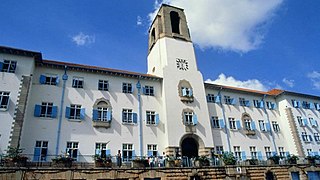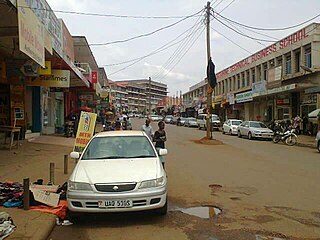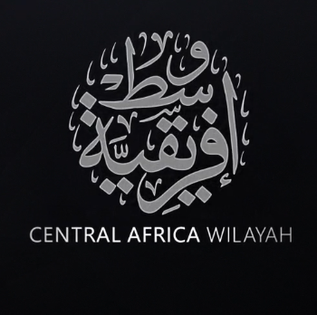
Apollo Milton Obote was a Ugandan politician who served as the second prime minister of Uganda from 1962 to 1966 and the second president of Uganda from 1966 to 1971 and later from 1980 to 1985.

The Allied Democratic Forces is an Islamist rebel group in Uganda and the Democratic Republic of the Congo (DRC), considered a terrorist organisation by the Ugandan government. It was originally based in western Uganda but has expanded into the neighbouring DRC. Most Ugandan ADF fighters are Muslims from the Baganda and Basoga ethnic groups.

Makerere University is Uganda's largest and oldest institution of higher learning, first established as a technical school in 1922, and the oldest currently active university in East Africa. It became an independent national university in 1970. Today, Makerere University is composed of nine colleges and one school offering programmes for about 36,000 undergraduates and 4,000 postgraduates. These colleges include College of Natural Sciences (CONAS), College of Health Sciences (CHS), College of Engineering Art & Design (CEDAT), College of Agriculture and Environmental Studies (CAES), College Of Business and Management Sciences (CoBAMS), College of Humanities & Social Sciences (CHUSS), College of Computing and Information Sciences (COCIS), College of Veterinary Medicine, Animal Resources & Bio-security (COVAB), College of Education and External Studies (CEES) and Makerere University Business School (MUBS). In addition, Makerere has onother campus in Eastern Uganda Jinja City.

Masaka is a district and a city in the Buganda Region in southern Uganda, west of Lake Victoria. The city is the headquarters of Masaka District.

Uganda Christian University (UCU) is a private church-founded university administered by the Church of Uganda. It was the first private University in Uganda to be awarded a charter by the Government of Uganda.
Terrorism in Uganda primarily occurs in the north, where the Lord's Resistance Army, a militant Christian religious cult that seeks to overthrow the Ugandan government, has attacked villages and forcibly conscripted children into the organization since 1988. The al-Shabbab jihadist group has also staged attacks in the country.
King’s College Budo is a mixed, residential, secondary school in Central Uganda (Buganda).

Edward Katumba Wamala, more commonly known as Katumba Wamala, is a Ugandan general who serves as Minister of Works and Transport in the Ugandan cabinet, since 14 December 2019.
Henry Tumukunde is a politician and retired senior military officer of the Uganda People's Defence Forces (UPDF). He ran as an independent for president in the 2021 Ugandan general election.

The Allied Democratic Forces insurgency is an ongoing conflict waged by the Allied Democratic Forces in Uganda and the Democratic Republic of the Congo, against the governments of those two countries and the MONUSCO. The insurgency began in 1996, intensifying in 2013, resulting in hundreds of deaths. The ADF is known to currently control a number of hidden camps which are home to about 2,000 people; in these camps, the ADF operates as a proto-state with "an internal security service, a prison, health clinics, and an orphanage" as well as schools for boys and girls.
Uganda Technical College, Kichwamba, also referred to as Kichwamba Technical College, is a government-owned, institution of tertiary education in the field of engineering, offering diploma courses.
Jamil Mukulu is a Ugandan militant leader and suspected war criminal who was the principal founder and former leader of the Allied Democratic Forces, an armed Islamist rebel group in Uganda and the Democratic Republic of the Congo. Mukulu was arrested in Tanzania in 2015 and is currently awaiting trial in Uganda for charges such as murder and crimes against humanity.

The Central Africa Province is an administrative division of the Islamic State (IS), a Salafi jihadist militant group and unrecognised quasi-state. As a result of a lack of information, the foundation date and territorial extent of the Central Africa Province are difficult to gauge, while the military strength and activities of the province's affiliates are disputed. The Central Africa Province initially covered all IS activities in the Democratic Republic of the Congo and Mozambique. In September 2020, during the insurgency in Cabo Delgado, IS-CAP shifted its strategy from raiding to actually occupying territory, and declared the Mozambican town of Mocímboa da Praia its capital. After this point, however, the Mozambican branch declined and was split off from IS-CAP in 2022, becoming a separate IS province.
St. Joseph's College Ombaci is a boys-only boarding middle and high school located in Arua City in the Northern Region of Uganda.
Events in the year 2021 in Uganda.
From late October to mid November 2021, the Allied Democratic Forces (ADF) and the Islamic State organization carried out four bombing attacks across Uganda.
Events in the year 2023 in Uganda.
On 16 June 2023 rebels of the Allied Democratic Forces (ADF), a jihadist group speculatively linked by analysts to the Islamic State, attacked a secondary school in Mpondwe, a town in western Uganda's Kasese District on the border with the Democratic Republic of the Congo. 42 people were killed, including 38 students; 8 were injured.











